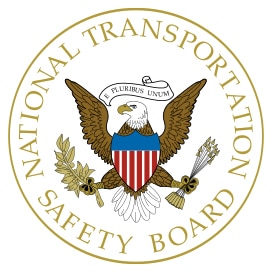
The National Transportation and Safety Board (NTSB) announced Oct. 12 that it ruled that a collision between a pair of Union Pacific trains in Texarkana, Texas, in September 2015 was probably caused by crewmembers who did not respond to wayside signal indicators because they had fallen asleep.
The board also said that the lack of a functioning positive train control was a contributing factor in the collision.
At 12:34 a.m. Sept. 8, 2015, when a westbound UP engine on the Pine Bluff Subdivision struck a northbound UP train that was traveling on the Little Rock Subdivision, the board said.
Data from the locomotive event recorder of the striking train showed that the train slowed from 19 to 6 mph after the engineer applied the emergency brakes, the board said.
The engineer and conductor of the westbound train were treated for minor injuries, and there were no injuries to the crew of the northbound train, the board said.
Both of the westbound train’s locomotives derailed, spilling 4,000 of diesel fuel, while seven cars of the train that was struck left the tracks, the board said.
The NTSB said damage to the trains was estimated at $4.66 million.
The board also announced Oct. 17 that it was to convene Nov. 14 to determine probable cause of a collision that happened April 3, 2016, between an Amtrak train and a backhoe that killed a pair of rail workers who were repairing track ballast in Chester, Pa.
A total of 41 passengers were taken to the hospital after the collision, the board’s preliminary report said.
Related News
- Operation Lifesaver campaigns to promote rail safety in 11 states
- New TD Crew Room Flyers Available
- Colorado bill criminalizing transit assault one step closer to becoming law
- Honoring the Legacy of Brother John A. Saunders
- Colorado Transit Worker Safety Bill (House Bill 25-1290)
- Kansas funds passenger rail expansion
- Maryland Passes Monumental Transit Safety Bill
- Brother Wirth Crowned Champion in 168-Pound Masters Division Victory
- Chairman Pauli Announces Retirement, SMART-TD celebrates his career
- New Mexico Local 1687 sets new precedent with Red Apple Transit